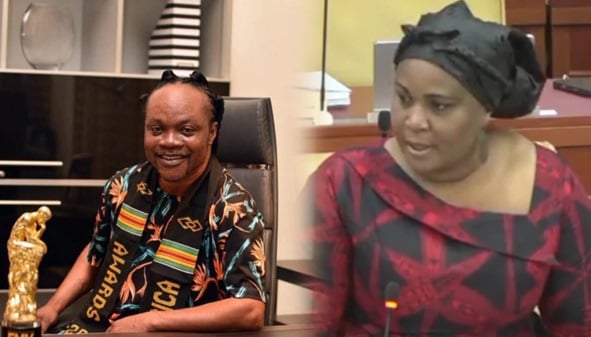The Ghanaian Parliament witnessed a poignant appeal on Monday as Hon. Adelaide Yaa Agyeiwaa Ntim, the Member of Parliament for Nsuta Kwaman Beposo, called for a state-assisted burial for the legendary highlife musician, Daddy Lumba. Ntim, a former Deputy Minister for Health, eloquently articulated the significance of Lumba’s contributions to Ghana’s music industry, emphasizing that his enduring legacy warranted national recognition. A state-sponsored funeral, she argued, would serve as a fitting tribute to the iconic artist’s lifelong dedication to enriching Ghanaian culture and would symbolize the nation’s gratitude for his immense impact. Furthermore, Ntim urged Parliament to implement measures to preserve Daddy Lumba’s legacy for posterity, ensuring that future generations could appreciate his musical genius and cultural influence. Her impassioned plea resonated deeply within the chamber, as she invited her colleagues to join the grieving community of Nsuta Kwaman Beposo, Lumba’s hometown, in mourning the loss of their beloved son.
Daddy Lumba, born Charles Kwadwo Fosu, embarked on his musical journey in 1989 with the release of his debut album, “Yɛyɛ Aka Akwantuo Mu,” a collaborative effort with Nana Acheampong. This inaugural project catapulted him to national prominence, laying the foundation for an illustrious career that spanned several decades. Lumba’s prolific output included over 32 albums, each one contributing to the tapestry of Ghanaian highlife music and leaving an indelible mark on the nation’s cultural landscape. His distinctive voice, infectious melodies, and profound lyrics resonated with audiences across generations, solidifying his status as a true icon of Ghanaian music. From the vibrant rhythms of his early works to the mature reflections of his later albums, Daddy Lumba’s artistic evolution showcased his versatility and unwavering commitment to his craft.
The news of Daddy Lumba’s passing on Saturday, July 26th, sent shockwaves throughout Ghana, triggering a profound outpouring of grief and tributes from fans, fellow musicians, and national figures. His music had become interwoven with the fabric of Ghanaian society, serving as the soundtrack to countless celebrations, moments of reflection, and national events. The sudden loss of such a beloved figure left a void in the hearts of many, prompting a national period of mourning and reflection on the impact of his extraordinary life and career. Social media platforms overflowed with expressions of sorrow and heartfelt testimonials to Lumba’s influence, underscoring the profound connection he had forged with his audience.
Hon. Agyeiwaa Ntim’s call for a state-assisted burial for Daddy Lumba reflects the widespread sentiment that his contributions transcend the realm of entertainment, representing a significant contribution to Ghana’s national identity. His music served as a unifying force, bringing people together across ethnic, social, and economic divides. The themes explored in his songs often touched on universal human experiences, offering commentary on love, loss, societal challenges, and the complexities of human relationships. This ability to connect with his audience on a deeply personal level elevated him beyond the status of a mere entertainer, transforming him into a cultural ambassador and a voice of the people.
A state-assisted burial, in this context, would not simply be a ceremonial gesture but a symbolic acknowledgment of Daddy Lumba’s profound influence on Ghanaian society. It would represent a public declaration of his artistic importance and a recognition of the emotional connection he forged with generations of Ghanaians. By providing support for his final rites, the state would effectively be affirming his status as a national treasure and ensuring that his legacy is preserved with the dignity and respect he deserves. This act would also serve as an inspiration to aspiring artists, demonstrating the nation’s appreciation for cultural contributions and encouraging the continued development of Ghanaian music.
Moreover, Hon. Ntim’s appeal for the preservation of Daddy Lumba’s legacy extends beyond a state-sponsored funeral. It encompasses broader initiatives aimed at documenting his life, music, and cultural impact for future generations. This could involve the establishment of archives, the creation of educational programs, and the support of research initiatives that explore the evolution of highlife music and Daddy Lumba’s pivotal role within it. Such efforts would not only honor his memory but also enrich Ghana’s cultural heritage, ensuring that the story of his remarkable journey continues to inspire and resonate with audiences for years to come. The enduring power of his music, coupled with dedicated efforts to preserve his legacy, will undoubtedly ensure that Daddy Lumba’s name remains synonymous with Ghanaian highlife and his contributions continue to be celebrated as an integral part of the nation’s cultural identity.


